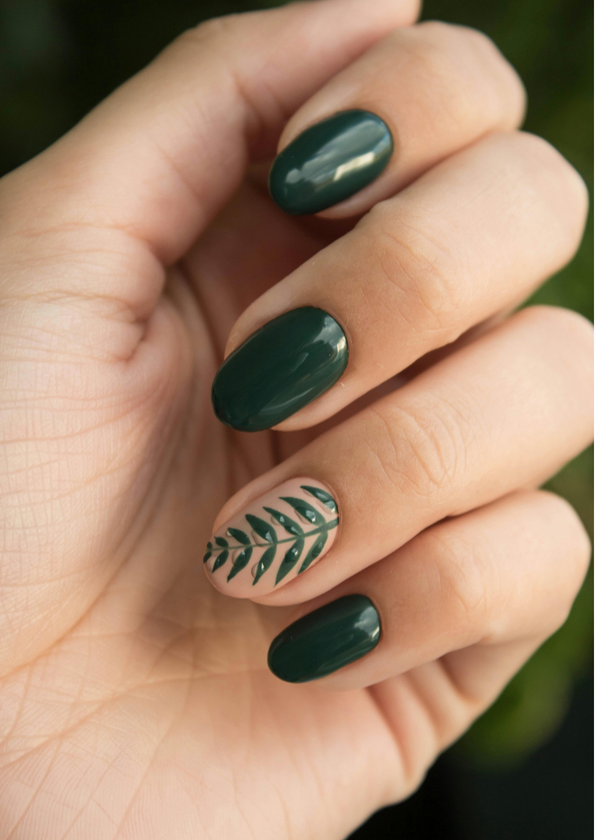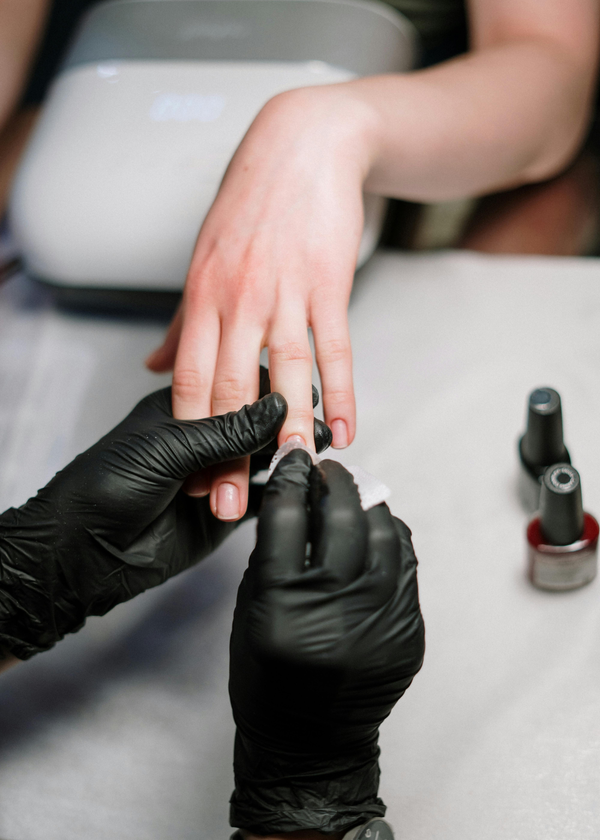The skin under our eyes is one of the most delicate areas on our body, often showing the first signs of aging, fatigue, and stress. With a plethora of skincare products on the market, it can be challenging to determine which ingredients are most effective for maintaining a youthful and vibrant under-eye appearance.
Two popular contenders in the realm of eye care are caffeine and vitamin C. This article delves into the debate of whether caffeine or vitamin C is better for under eyes, examining their benefits, how they work, and which might be the best fit for your skincare routine.
Caffeine: A Stimulating Solution for Tired Eyes
Caffeine is not just a morning pick-me-up in your coffee cup; it's also a common ingredient in skincare, particularly in products designed for the under-eye area. But how do caffeine eye creams work?
Caffeine is known for its ability to constrict blood vessels, which can reduce puffiness and dark circles caused by excess fluid beneath the skin.
The best caffeine eye creams often include additional ingredients like green tea extract, which provides antioxidant protection and further helps to diminish dark circles.
Vitamin C: The Brightening Boost Your Eyes Crave
On the other hand, vitamin C is celebrated for its antioxidant properties and its role in stimulating collagen production, which is crucial for maintaining firm and elastic skin. Vitamin C eye creams can help to brighten dark circles, smooth fine lines, and promote skin hydration.
Products like the Universal C Eye Perfector are formulated with skin-identical ceramides and vitamin C to not only treat dark circles but also to combat free radical damage that can lead to premature aging.
Caffeine's Role in Reducing Puffiness and Dark Circles
Caffeine's ability to improve blood flow and reduce the appearance of dark circles is backed by its vasoconstrictive properties. By narrowing blood vessels, caffeine eye creams work to minimize the visibility of dark shadows caused by blood pooling under the delicate under-eye skin.
This can lead to a more refreshed and awake look, making caffeine a go-to ingredient for those looking to reduce puffiness and dark circles.
Vitamin C's Impact on Skin Tone and Texture
Vitamin C is not only effective in reducing dark under-eye circles but also in improving skin texture and tone. Its role in collagen synthesis makes it a powerful ally in the fight against fine lines and wrinkles.
Additionally, vitamin C can help to protect the skin from sun damage, which is a significant contributor to dark circles and a dull, uneven skin tone.
Hyaluronic Acid: The Hydration Hero for Your Eyes
Hyaluronic acid is like a tall glass of water for your under eye area, providing much-needed hydration to maintain a plump and youthful appearance.
This naturally occurring substance is a magnet for moisture, helping skin cells retain as much water as possible.
When applied in the form of an eye serum or a firming eye cream, hyaluronic acid can help to minimize dark circles and reduce under eye puffiness. Its ability to draw and hold water not only plumps the delicate under eye skin but also smooths out fine lines, giving you that coveted fresh-faced look.
Incorporating hyaluronic acid into your morning routine can be a real pick-me-up for tired eyes. It works in tandem with other ingredients like caffeine and vitamin C to enhance their effects.
For instance, a vitamin C eye cream enriched with hyaluronic acid not only brightens dull skin but also provides intense hydration, leading to a more radiant and awakened eye complex.
Credit goes to this powerful ingredient for its ability to work with the body's stem cells and support the skin's natural barriers, including those skin identical ceramides that keep our skin looking firm and smooth.
The Science Behind Caffeine and Skin Care
Caffeine is not just your morning pick me up; it's also a potent ingredient in skin care, particularly in the best caffeine eye creams. When applied topically, caffeine constricts blood vessels, which can significantly reduce dark circles and the appearance of puffiness around the eyes. It's like giving your eye complex credit for all the hard work it does day in and day out.
By stimulating blood flow, caffeine helps to rejuvenate tired-looking skin, making it appear more vibrant and awake.
Moreover, caffeine's antioxidant properties are a boon for the skin. They help to protect the delicate under-eye area from environmental stressors that can lead to premature aging.
A board-certified dermatologist might often recommend caffeine-infused products because they can also accelerate the drainage of fluid that contributes to swelling.
This means that incorporating a caffeine eye cream into your daily skin care routine could help maintain the youthful appearance of your eyes over time.
The Role of Board Certified Dermatologists in Eye Care
When it comes to under-eye care, consulting with a board certified dermatologist can provide tailored advice that's crucial for addressing individual concerns. T
hese skin experts understand the intricate balance of ingredients like caffeine and vitamin C, and how they can be used to effectively reduce dark circles and puffiness.
A dermatologist's guidance is especially valuable when navigating the plethora of eye care products available on the market, ensuring you choose the best caffeine eye cream or vitamin C serum that's right for your skin type.
Moreover, board certified dermatologists can offer insights into the latest advancements in skincare, including treatments that may involve the body's stem cells for regeneration and healing.
Their expertise extends beyond topical treatments, as they can also recommend lifestyle changes and in-office procedures that complement the use of caffeine and vitamin C products, providing a comprehensive approach to achieving brighter and more youthful-looking eyes.
The Potential of Body's Stem Cells in Eye Treatment
The realm of skincare is abuzz with the potential of leveraging the body's stem cells for eye treatment.
These remarkable cells have the unique ability to transform into various cell types, offering a regenerative powerhouse that could revolutionize under-eye care. Imagine a future where the signs of aging and fatigue around the eyes could be addressed not just superficially, but on a cellular level.
This is not science fiction; research is ongoing to harness these cells to rejuvenate the delicate skin around the eyes, potentially reducing the need for external applications of caffeine or vitamin C.
In practical terms, stem cell technology in eye care could mean personalized treatments that stimulate the body's own healing mechanisms.
By encouraging the growth of new skin cells, stem cells could help in reducing dark circles and puffiness more effectively than traditional topical treatments. While the science is still in its infancy, the promise it holds is immense.
As we understand more about how to safely use the body's stem cells, we may find that they are the ultimate solution for under-eye concerns, working synergistically with other ingredients like caffeine and vitamin C to provide comprehensive eye rejuvenation.
The Evolution of Eye Care: Embracing Body's Stem Cells
The beauty and skincare industry is continuously evolving, and one of the most exciting developments is the use of the body's stem cells in eye care.
These powerful cells have the remarkable ability to transform into various cell types, offering a regenerative solution for under-eye concerns. By harnessing the body's stem cells, researchers are exploring treatments that could potentially reverse signs of aging and fatigue around the eyes.
This innovative approach is gaining traction as it promises a more natural and holistic method of maintaining youthful and vibrant skin.
In practical terms, products and treatments that capitalize on the body's stem cells are beginning to emerge in the market.
These solutions often aim to stimulate the skin's own regenerative processes, leading to improved elasticity and reduced appearance of fine lines and wrinkles.
While the science is still in its infancy, the potential for stem cell-based therapies to work in synergy with ingredients like caffeine and vitamin C is a thrilling prospect for the future of eye care.
The Role of Genetics in Under-Eye Health
When discussing under-eye care, it's essential to consider the role of genetics, as they can significantly influence the appearance of our under-eye area. Genetics determine skin thickness, pigmentation, and even how our body's stem cells repair and regenerate skin tissues.
Some individuals are predisposed to thinner skin or weaker blood vessels in the under-eye region, which can lead to more pronounced dark circles or puffiness. Understanding your genetic predisposition can help tailor a skincare routine that effectively addresses these hereditary traits.
Moreover, advancements in genetic research have shed light on how body's stem cells can be optimized to enhance skin health.
By studying genetic markers, scientists are developing targeted treatments that can boost the regenerative capabilities of stem cells in the delicate under-eye area.
This personalized approach to eye care is a promising avenue for those looking to combat genetically influenced under-eye concerns with cutting-edge science.
Environmental Factors and Under-Eye Care
External environmental factors also play a crucial role in the health of the under-eye area. Exposure to UV rays, pollution, and even blue light from screens can lead to oxidative stress, which damages skin cells and accelerates aging.
This is where the body's stem cells come into play, as they are integral to the skin's ability to repair and rejuvenate itself.
Protecting the under-eye area from environmental stressors is crucial, and incorporating antioxidants like Vitamin C can help neutralize free radicals and support the skin's natural defense mechanisms.
In addition to topical treatments, lifestyle choices such as wearing UV-protective sunglasses and using screen filters can aid in minimizing exposure to harmful elements. By combining these protective measures with products that stimulate the body's stem cells, individuals can create a comprehensive under-eye care regimen that not only addresses existing damage but also prevents future signs of aging.
This holistic approach to eye care ensures that both internal and external factors are considered for optimal skin health.
Stem Cells and Eye Care: A New Frontier
As we delve deeper into the potential of the body's stem cells for eye rejuvenation, it's important to understand the mechanisms at play. Stem cells possess the unique capability to repair and replace damaged tissues, which is particularly beneficial for the delicate skin around the eyes.
This area is prone to showing the first signs of aging due to its thinness and constant movement. By introducing stem cell technology into eye care routines, there's a possibility of not just slowing down the aging process but also repairing the wear and tear that has already occurred.
Case studies and clinical trials are beginning to shed light on the effectiveness of stem cell-infused eye care products. For instance, some users have reported a noticeable reduction in under-eye bags and dark circles after consistent use of these innovative treatments.
Although more research is needed to fully understand and optimize the use of the body's stem cells in skincare, the initial findings are promising. As this field grows, it could revolutionize the way we approach eye care, offering more effective and long-lasting solutions to common under-eye issues.
Combining Stem Cell Science with Caffeine and Vitamin C
The integration of stem cell science with well-known ingredients such as caffeine and vitamin C could be the next frontier in eye care. Imagine a serum that not only delivers the antioxidant benefits of vitamin C and the vasoconstrictive effects of caffeine but also stimulates the body's stem cells to repair and regenerate the skin.
This triad could address under-eye issues from multiple angles, offering a more holistic approach to eye care. By combining the immediate effects of caffeine and vitamin C with the long-term regenerative properties of stem cells, users could see improvements in skin texture, tone, and overall eye health.
This innovative approach would not only enhance the efficacy of traditional eye care routines but also provide a new level of customization. As we learn more about how different stem cells interact with various skin types and conditions, products could be tailored to individual needs, maximizing the benefits for each user.
The potential for such personalized eye care is exciting and represents a significant leap forward in our quest to maintain a youthful and vibrant appearance. With ongoing research and development, the synergy of caffeine, vitamin C, and the body's stem cells could become the gold standard in combating the signs of aging around the eyes.
Harnessing the Body's Stem Cells for Eye Rejuvenation
In the realm of cutting-edge skincare, the use of the body's stem cells has emerged as a promising avenue for rejuvenation, particularly around the delicate eye area.
These powerful cells have the potential to repair and regenerate skin tissue, which can lead to significant improvements in skin tone and texture. When combined with the right concentrations of caffeine, which reduces dark circles, and vitamin C, which brightens the skin, stem cell technology can amplify the restorative effects, resulting in a more vibrant and refreshed appearance.
The best caffeine eye cream might boast of incorporating stem cell extracts to enhance its efficacy. These advanced formulas are designed to tap into the body's natural healing mechanisms, providing a boost to the skin's resilience against aging and environmental stressors.
As research continues to evolve, the integration of stem cells in eye care products represents a frontier in dermatology that could transform the way we approach under-eye treatment, offering a glimpse into the future of personalized skincare solutions.
Vitamin C: The Antioxidant Powerhouse for Eye Rejuvenation
Vitamin C is renowned for its skin-brightening capabilities, making it an essential component of any eye care regimen aimed at reducing dark circles. It's an antioxidant powerhouse that helps to combat the signs of aging by supporting the body's stem cells in their repair processes. This can lead to improved skin tone and a reduction in the appearance of fine lines and wrinkles around the eyes. Vitamin C also promotes collagen production, which is vital for maintaining the elasticity and firmness of the skin.
Incorporating Vitamin C into your skin care routine can be transformative, especially when it comes to illuminating the under-eye area. A board-certified dermatologist might suggest looking for serums or creams that contain a stable form of Vitamin C to ensure maximum efficacy. Regular use can help fortify the skin against oxidative stress and can act as a brightening agent, giving you that sought-after radiant and refreshed look.
Jojoba Oil and Ceramides: Nourishing Allies for Eye Care
Jojoba oil is a natural wonder that closely mimics the skin's own sebum, making it an excellent choice for maintaining the health of the delicate under eye skin. When used in an eye serum or cream, jojoba oil provides a gentle, soothing effect, reducing dark circles and combating dryness without irritating sensitive areas. It's a key ingredient in many of the best caffeine eye creams, as it enhances the cream's ability to reduce dark circles and depuff the eye area. Plus, its antioxidant properties help protect the skin from environmental stressors that can lead to premature aging.
Skin identical ceramides are another cornerstone of skin wellness dermatology, playing a crucial role in reinforcing the skin's natural barrier and retaining moisture. A board-certified dermatologist would likely recommend products containing ceramides for anyone looking to maintain a healthy skin barrier, especially around the eyes. These lipids work in harmony with hyaluronic acid and jojoba oil to provide a comprehensive approach to eye care, targeting eye bags, puffy eyes, and dark under eye circles. Together, they create a formidable team that supports skin's resilience and contributes to a more youthful and vibrant appearance.
The Synergy of Caffeine and Vitamin C
While the debate on whether caffeine or vitamin C is better for under eyes continues, it's worth considering the benefits of using both. Combining caffeine's ability to reduce puffiness with vitamin C's skin-brightening effects can lead to a more comprehensive approach to under-eye care. Skincare products that harness the power of both ingredients, like the Coffee Bean Caffeine Eye Cream, offer a multifaceted solution to common under-eye concerns.
Sensitive Skin Considerations
When choosing between caffeine or vitamin C for the under-eye area, it's essential to consider your skin type. Those with sensitive or delicate skin may react differently to these ingredients. Caffeine is generally well-tolerated, but some may find it drying. Conversely, vitamin C is typically gentle but can cause irritation in higher concentrations. It's crucial to patch-test products and consult with a board-certified dermatologist if you have concerns.
Incorporating Caffeine or Vitamin C into Your Routine
Integrating caffeine or vitamin C into your skincare routine doesn't have to be complicated. A lightweight eye cream or eye gel applied in the morning can offer a refreshing start to the day. For caffeine, look for products with the caffeine eye cream credit, indicating a significant concentration of the ingredient. Vitamin C eye creams can be used both in the morning and at night, but be sure to follow up with SPF during the day to protect against sun damage.
Lifestyle Habits and Under-Eye Care
While topical treatments are beneficial, they work best in conjunction with healthy lifestyle habits. Adequate sleep, hydration, and a balanced diet play a crucial role in maintaining the appearance of the under-eye area. Additionally, habits like smoking or excessive alcohol consumption can exacerbate issues like puffiness and dark circles, so it's important to consider these factors alongside your skincare regimen.
The Verdict: Caffeine or Vitamin C?
Ultimately, the choice between caffeine or vitamin C for under-eye care depends on your specific concerns and skin type.
Caffeine is excellent for those looking to reduce puffiness and dark circles quickly, while vitamin C is ideal for long-term skin health, brightening, and anti-aging benefits.
Many find that using both ingredients, either in combination products or separate treatments, provides the best results for a youthful and radiant under-eye appearance.
FAQs
Q: Can I use caffeine and vitamin C together for my under-eye area?
A: Yes, you can use caffeine and vitamin C together. Many skincare products combine these ingredients to provide comprehensive under-eye care. However, it's essential to introduce new products gradually and monitor your skin's response.
Q: Are caffeine and vitamin C suitable for all skin types?
A: Caffeine and vitamin C are generally suitable for most skin types, but individuals with sensitive or delicate skin should be cautious. It's recommended to patch-test new products and consult with a dermatologist if you have concerns.
Q: How often should I apply caffeine or vitamin C eye creams?
A: Caffeine eye creams are typically applied in the morning to reduce puffiness and dark circles, while vitamin C eye creams can be used both in the morning and at night. Always follow the instructions on the product label and consider your skin's tolerance when determining frequency of use.
Summary
The delicate under-eye skin requires special attention, and both caffeine and vitamin C offer unique benefits to address common concerns like dark circles, puffiness, and signs of aging.
Caffeine is a vasoconstrictor that can quickly minimize puffiness and dark circles, while vitamin C is an antioxidant that helps brighten the skin and stimulate collagen production. Sensitive skin types should approach these ingredients with caution and consider their lifestyle habits as part of their overall under-eye care strategy.
Ultimately, the choice between caffeine and vitamin C may come down to personal preference and specific skin concerns, with many individuals benefiting from a combination of both.








